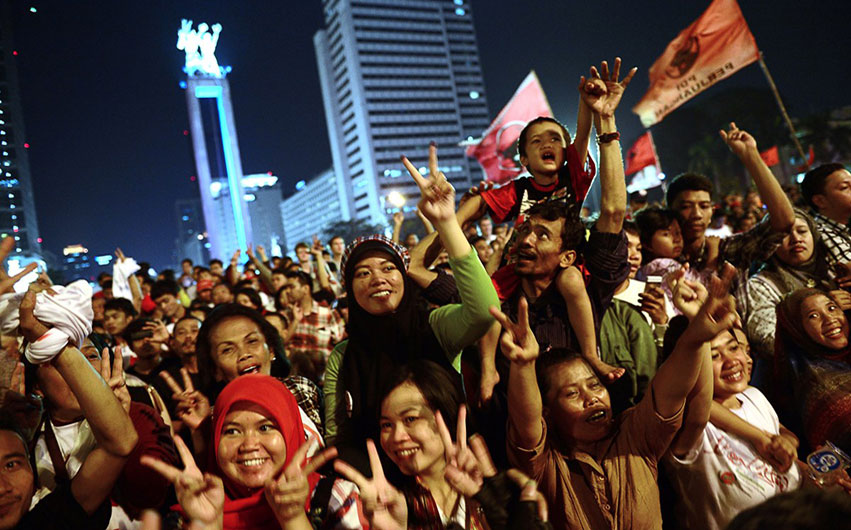
Berenschot, Prof. dr. Ward
Ward Berenschot is a professor of comparative political anthropology at the University of Amsterdam and a senior researcher at KITLV. Studying politics in India and Indonesia, his research focuses on the role of money and informality in election campaigns, while a second field of research concerns the character of civil society and citizenship in these countries. He has also been involved in efforts to promote legal aid in Indonesia, particularly in relation to land conflicts sparked by palm oil expansion.
Berenschot studied political science at the University of Amsterdam, where he also obtained his PhD cum laude with a dissertation on Hindu-Muslim violence in India. He is the author of Riot Politics: Hindu-Muslim Violence and the Indian State (Hurst/Columbia University Press, 2011) and Democracy for Sale: Elections, Clientelism and the State in Indonesia (Cornell University Press, 2019) as well as various articles on governance, access to justice, citizenship and religious conflict. At KITLV, Berenschot has coordinated a KNAW funded research program on Citizenship in Indonesia, as well as an NWO funded program on Clientelism and Election Campaigns in Indonesia.
His current research focuses on three main topics: land conflicts, campaign finance, and public opinion manipulation through social media. He coordinates a research collaboration (with Wageningen University and Universitas Andalas) that studies the activism of rural Indonesians against palm oil companies. With researchers at the University of Amsterdam and Universitas Diponegoro Berenschot works on a research project that studies how online ‘buzzers’ are used to manipulate public opinion in Indonesia. He teaches courses on political economy and historical comparative sociology at Leiden University and the University of Amsterdam.
Blogs
Read Ward’s blogs here: www.informalpolitics.org
Selected Publications
With Edward Aspinall, Democracy for sale: Elections, clientelism and the state in Indonesia. Ithaca: Cornell University Press, 2019. (See reviews in New York Review of Books and Asian Studies Review).
With Adrianus Hendrawan and Edward Aspinall, ‘Parties as pay-off seekers: Pre-electoral coalitions in a patronage democracy’, Electoral Studies 69, 2021.
With Widge Capri & D. Devy Dhian, ‘A quiet revolution? Village head elections and the democratization of rural Indonesia’, Critical Asian Studies 53-1: 126–146, 2021.
With Edward Aspinall, ‘How Clientelism varies: Comparing patronage democracies’, Democratization 27-1: 1–19, 2020.
‘Patterned pogroms: Patronage networks as infrastructure for electoral violence in India and Indonesia’, Journal of Peace Research 57-1: 171–184, 2020.
With Peter Mulder, ‘Explaining Regional Variation in Local Governance: Clientelism and State-Dependency in Indonesia’, World Development 122: 233-44, 2019.
With Sarthak Bagchi, ‘Comparing brokers in India: Informal networks and access to public services in Bihar and Gujarat’, Journal of Contemporary Asia 50-3: 1–21, 2019.
‘The political economy of clientelism: A comparative study of Indonesia’s patronage democracy’, Comparative Political Studies 51-12: 1563-93, 2018.
With Gerry van Klinken, ‘Informality and citizenship: The everyday state in Indonesia’, Journal of Citizenship Studies, 22-2, 2018.
With Retna Hanani & Prio Sambodho, ‘Brokers and citizenship: Access to health care in Indonesia’, Journal of Citizenship Studies 22-2, 2018.
‘Incumbent Bureaucrats: Why Elections Undermine Civil Service Reform in Indonesia’, Public Administration and Development 38-4: 135-43, 2018.
Riot Politics: India’s Hindu-Muslim Violence and the Indian State. London: Hurst/Colombia University Press, 2011. (See reviews in New Republic, Hindustan Times, The Hindu and Commonwealth and Comparative Politics)





